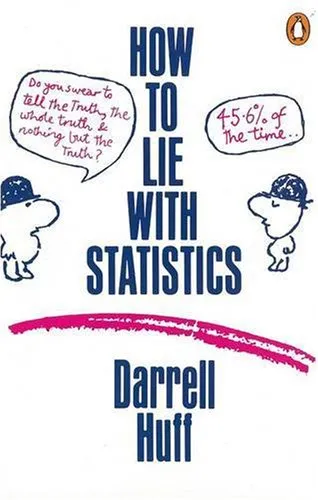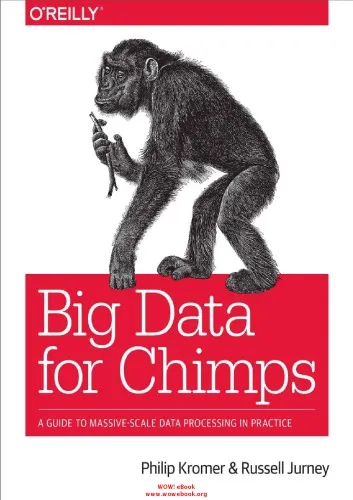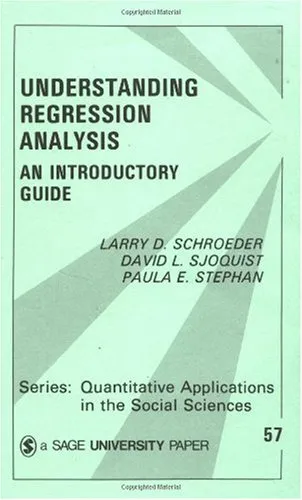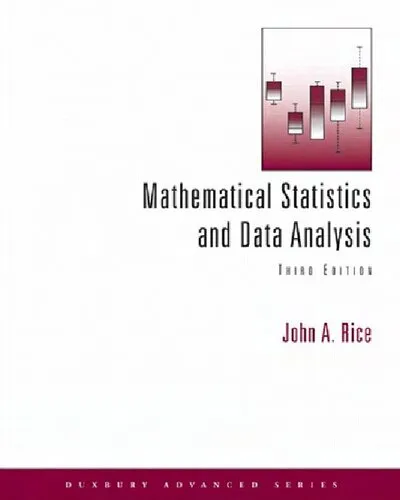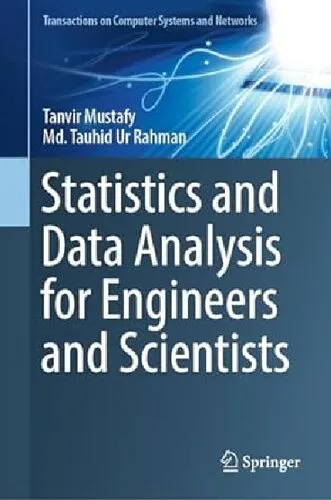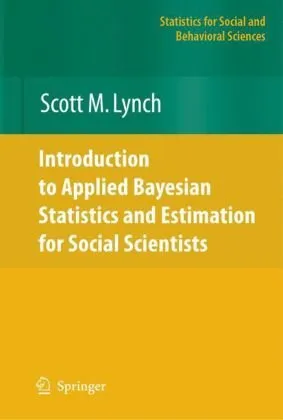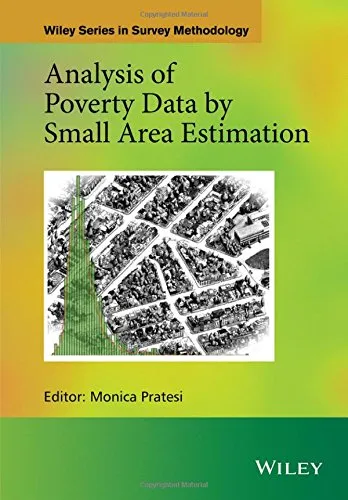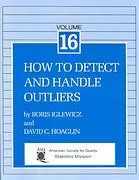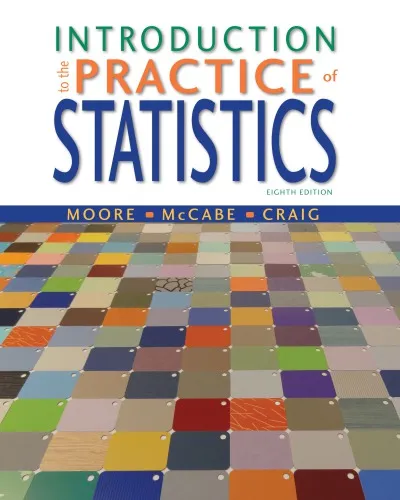Processing Random Data: Statistics for Engineers And Scientists
4.0
بر اساس نظر کاربران

شما میتونید سوالاتتون در باره کتاب رو از هوش مصنوعیش بعد از ورود بپرسید
هر دانلود یا پرسش از هوش مصنوعی 2 امتیاز لازم دارد، برای بدست آوردن امتیاز رایگان، به صفحه ی راهنمای امتیازات سر بزنید و یک سری کار ارزشمند انجام بدینکتاب های مرتبط:
معرفی کتاب "Processing Random Data: Statistics for Engineers And Scientists"
کتاب "Processing Random Data: Statistics for Engineers And Scientists" نوشته رابرت وی. ادواردز یکی از جامعترین منابع موجود در زمینه استفاده از Statistics برای تحلیل دادههای تصادفی است. این کتاب به طور خاص برای مهندسان و دانشمندان طراحی شده است و مباحث آمار را با استفاده از مثالهای دنیای واقعی و کاربردی بیان میکند. کتاب حاضر با ارائه روشهای نوآورانه، ابزارهای پیشرفته و شیوهای روان و ساده به حرفهایها کمک میکند تا مفاهیم پیچیده ریاضی و آمار را به راحتی درک کنند و در پروژههای واقعی استفاده کنند.
خلاصهای از کتاب
این کتاب به آنالیز و پردازش دادههای تصادفی در محیطهای گوناگون میپردازد. در ابتدای کتاب، اصول اولیه Statistics توضیح داده شده و در ادامه تمرکز بیشتری به ابزارها و تکنیکهای کاربردی از جمله Regression، Hypothesis Testing، Monte Carlo Simulations، و Time Series Analysis شده است. این کتاب نه تنها تئوریهای علمی را شرح میدهد بلکه راهحلهای عملی برای مشکلات رایج در هنگام مدیریت و پردازش داده ارائه میدهد. هر فصل شامل توضیحات نظری، مثالهای کاربردی و تمرینهایی با پاسخ بوده که به خواننده کمک میکند تا مفاهیم عمیقتر درک شود.
نکات کلیدی کتاب
- تشریح کامل مفاهیم Statistics با زبانی ساده و کاربردی
- پیادهسازی ابزارهای پیشرفته برای آنالیز دادههای پیچیده
- ارائه مثالها و تمرینهایی مرتبط با علوم مهندسی و تجربی
- بررسی تکنیکهایی نظیر Probability Distributions و Statistical Inference
- آموزش نحوه ترکیب دادههای تجربی با تحلیلهای آماری
- توضیح مفاهیم پیچیدهای نظیر Bayesian Statistics و Machine Learning به زبان ساده
نقلقولهای مشهور از کتاب
"Statistics are not just numbers; they are stories told by data."
"Understanding Randomness is the key to mastering uncertainty."
چرا این کتاب اهمیت دارد؟
در دنیای مدرن امروز که توسط دادهها هدایت میشود، توانایی تفسیر و تحلیل دادههای تصادفی یکی از مهمترین مهارتهای هر مهندس و دانشمند است. کتاب "Processing Random Data: Statistics for Engineers And Scientists" ابزاری ضروری برای افرادی است که در حرفههای مرتبط با داده، تحقیقات علمی یا کاربردهای مهندسی فعالیت میکنند. این کتاب با تمرکز ویژه روی چالشهای عملی، دانشآموزان و متخصصان را قادر میسازد تا با اطمینان بیشتری در پروژههای خود عمل کنند. علاوه بر این، ساختار جامع کتاب باعث میشود که هم برای مبتدیها و هم برای حرفهایها مفید باشد. اگر به دنبال ابزاری برای ارتقاء مهارتهای آماری خود هستید، این کتاب راهنمای کامل و دقیق شما خواهد بود.
Introduction to "Processing Random Data: Statistics for Engineers And Scientists"
"Processing Random Data: Statistics for Engineers And Scientists" is a comprehensive guide designed to bridge the gap between theoretical statistics and its practical application in engineering and scientific fields. Whether you are an aspiring engineer, a seasoned scientist, or someone working with real-world data in your professional domain, this book empowers you with the tools needed to master statistical processing while tackling the inherent randomness in data.
The book's clarity, depth, and hands-on approach make it a standout resource, suitable not just for classroom learning but also as a reliable reference for professionals. By combining theory with practical examples and a problem-solving mindset, "Processing Random Data" ensures readers gain a robust understanding of statistical principles and their application to solve complex problems in real-world scenarios.
Detailed Summary of the Book
The book delves into the fundamentals of statistical methods tailored specifically for use in engineering and the sciences. It opens with an introductory exploration of randomness in data, discussing its ubiquity in real-world systems and the need to process such data effectively. The reader is then guided through the essential statistical concepts, ranging from probability theories and distributions to hypothesis testing and regression analysis.
What sets this book apart is its emphasis on practical application. Each topic is illustrated with real-world examples and datasets drawn from diverse fields such as engineering design, materials science, environmental studies, and physics. Key chapters cover foundational topics like random variables, probability distributions, and sampling techniques, moving progressively toward advanced concepts, including stochastic processes and time-series analysis.
Furthermore, the book emphasizes computational tools, showing how statistical software and programming languages can be integrated into the analytical process. By combining clear explanations, thoughtful exercises, and programming-based examples, "Processing Random Data" equips its readers with both theoretical insight and practical skills.
Key Takeaways from the Book
- Understand the core statistical concepts that drive decision-making in engineering and science.
- Learn how to model and interpret various types of probabilistic data.
- Master the art of hypothesis testing and rely on empirical methods for problem-solving.
- Gain proficiency in analyzing patterns within time-series data and stochastic systems.
- Adopt computational techniques and modern tools to process large datasets with precision.
- Develop a critical approach to evaluating data validity and associated statistical models.
Famous Quotes from the Book
"Randomness is not chaos, but rather an opportunity to uncover patterns and drive informed decision-making."
"Statistics isn't merely the science of uncertainty; it is a toolkit for clarity in the face of unpredictability."
Why This Book Matters
In today's data-driven world, engineers and scientists are increasingly challenged to work with vast amounts of data, much of which is inherently random. This book matters because it fills a critical gap in bridging theoretical concepts and practical needs, ensuring that professionals in technical fields are armed with the skills to assess, process, and utilize data effectively.
Furthermore, the book introduces a balanced framework that combines fundamental understanding with modern computational methods. It prepares readers to navigate the growing challenges of big data and emerging technologies. Its real-world focus and emphasis on problem-solving make it an indispensable resource for anyone eager to unlock insights from data.
Finally, "Processing Random Data" inspires confidence in its readers, reassuring them that with the right tools and approaches, even randomness can be tamed to their advantage. It is a book that will resonate not only with students and academics but also with professionals who live on the forefront of technological and scientific innovation.
دانلود رایگان مستقیم
شما میتونید سوالاتتون در باره کتاب رو از هوش مصنوعیش بعد از ورود بپرسید
دسترسی به کتابها از طریق پلتفرمهای قانونی و کتابخانههای عمومی نه تنها از حقوق نویسندگان و ناشران حمایت میکند، بلکه به پایداری فرهنگ کتابخوانی نیز کمک میرساند. پیش از دانلود، لحظهای به بررسی این گزینهها فکر کنید.
این کتاب رو در پلتفرم های دیگه ببینید
WorldCat به شما کمک میکنه تا کتاب ها رو در کتابخانه های سراسر دنیا پیدا کنید
امتیازها، نظرات تخصصی و صحبت ها درباره کتاب را در Goodreads ببینید
کتابهای کمیاب یا دست دوم را در AbeBooks پیدا کنید و بخرید
1268
بازدید4.0
امتیاز0
نظر98%
رضایتنظرات:
4.0
بر اساس 0 نظر کاربران
Questions & Answers
Ask questions about this book or help others by answering
No questions yet. Be the first to ask!
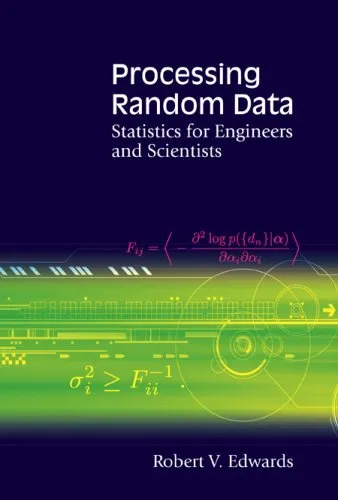


![Statistics: The Art and Science of Learning from Data [RENTAL EDITION]](https://s3.refhub.ir/images/thumb/Statistics__The_Art_and_Science_of_Learning_f_9188.webp)
